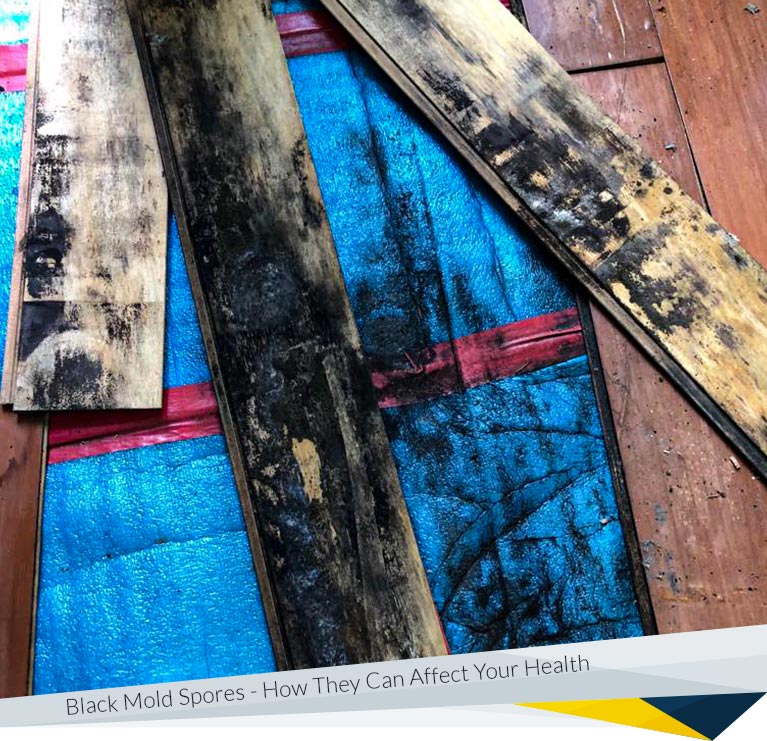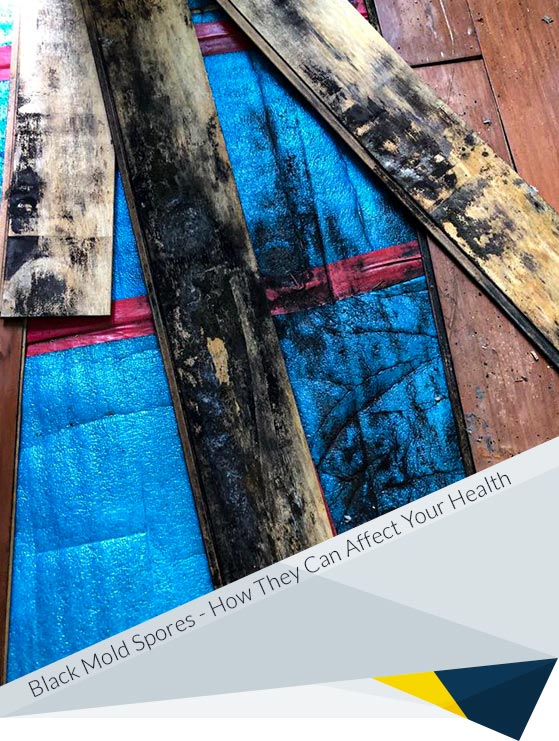
Do you have a leak in your kitchen? Or maybe you had a recent flood that took a while to completely remove. You might be in danger of a black mold invasion.
What's that?! That's what you're about to find out.
We discovered that black mold is a danger that most homeowners don't understand or know how to overcome, despite how common it is. So, we put this article together to teach all you should know about black mold danger, prevention and removal.
But first, what is black mold?
Black mold is generally used to refer to any mold that has a black color or is toxic. However, that is not technically correct as black mold scientifically refers to a species of mold called Stachybotrys chartarum.
Stachybotrys chartarum has a greenish-black color and grows on materials with high cellulose. It also requires constant moisture for growth like other molds. In homes with leakages and flood problems, it's quite common to find this mold.
But, before we get ahead of ourselves, do you know what a mold is?
A mold is a type of fungus that grows on moist surfaces. It comes in different colors and grows in warm, humid climates. Mold spores are, however, often in the air. But until it settles on a moist surface and starts growing, it doesn't usually pose a problem. Once it does, it quickly populates the area, sending even more spores into the air so it can continue to reproduce.

So, back to black mold!
There is a lot of fear and concern about this type of mold. Many people have linked black mold spores with the cause of illnesses like lung cancer and asthma. Black mold releases mycotoxins which are believed to cause these health problems.
However, there is no scientific evidence that inhaling or handling black mold is the root cause of these health issues!
Does that mean you can just ignore that black mold in your house? NO!
Mold, all types of mold growth, should always be removed as a matter of urgency. The thing is, some people are more sensitive to black mold, Stachybotrys, than others. Since its symptoms can be confused with other things, it makes the black mold danger very real.
Do you think it's mold that's making you sick? Check out these symptoms of mold exposure below!
People react to mold exposure in different ways. However, here is a list of some of the most common symptoms of a mold infection or poisoning.
The problem with these symptoms is that they could be indicators for anything. So, how do you know it's from mold? You need to see a doctor for a blood test to find out if you're allergic to mold.
However, you should also note that if you are already sick with a weak immune system, mold exposure would only make your health worse. In cases of people with uncontrolled HIV, cancer, transplant patients, mold exposure can be life-threatening.
Even if you do not fall into this category, mold exposure for infants, elderly people, and in fact, all people pose a danger to your health. It also reduces the monetary value of your property. Therefore, you should attack this problem as soon as you suspect it.
But, how exactly should you go about black mold removal? We have answered that question.
The most common symptoms of mold exposure are respiratory problems, such as coughing and difficulty breathing. Other symptoms include skin irritation, headaches, fatigue, and dizziness. People with allergies or asthma are especially susceptible to the effects of mold. Mold can also cause serious health problems in young children and infants. If you think you have been exposed to mold, it is important to see a doctor as soon as possible. Untreated exposure to mold can lead to serious health problems.
Yes, black mold can be bad for your health. It can cause a range of symptoms, including respiratory problems, headaches, skin irritation, and fatigue. In severe cases, black mold exposure can lead to memory loss, anxiety, and depression. If you have any of these symptoms and you think black mold might be the cause, it is important to see a doctor right away.
The first thing is don't freak out! This problem can be easily taken care of, but NOT BY YOU!
Yes, you read right. Don't try to DIY black mold removal. There are several blogs with such solutions but the truth is, it's not in your best interest.
The best thing to do is call a mold remediation service. Mold Remediation would help you remove the mold and prevent its regrowth. Mold Remediation companies have specialists who would help you take care of the problem without any stress to you.
A professional can help you with mold testing (air probe or surface probe) which would help you know the type and quantity of mold in your house. Air probe testing is also essential if you want to improve the air quality in your home.
A professional mold inspection would also help you find that mold you have been perceiving but haven't found. Considering all these factors, you want to leave the mold search and mold cleanup to the professionals.
It seems like we've mentioned a lot of terms: mold remediation, mold removal, mold inspection, and mold testing. Wondering if all these services are the same or different? And which one you should get if they are different? Wonder no more!
Mold inspection is the act of finding hidden mold growth in your house. The inspector comes into your home and checks around using some equipment to find the mold growth. He just locates the places where hidden mold is likely to be growing, based on moisture, water damage history, and other factors. On the other hand, mold testing involves an air or surface probe to know the type of mold and the extent of mold growth.
Mold Remediation and Removal have more to do with getting rid of the mold. However, mold removal is just the act of cleaning up the mold with specialized equipment. Mold remediation involves an entire process of restoring your house to its former state and reducing the level of mold spores.
Since you have found the black mold, what you would be looking for is a mold remediation service near me.
FDP Mold Remediation is the professional company you need if you are in New Jersey, New York, Washington DC, or any of the other cities listed on our website. Our remediation service is top-notch with experienced technicians and professional state-of-the-art equipment. You can be sure you won't see that black mold ever again. Guaranteed!
We also offer mold inspection, testing, and removal services. FDP Mold Remediation is your one-stop-shop for everything mold. So, don't let that black mold take your sound health. Take action today. Call us now!

